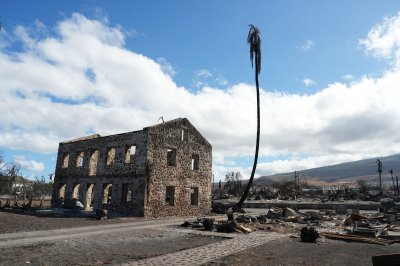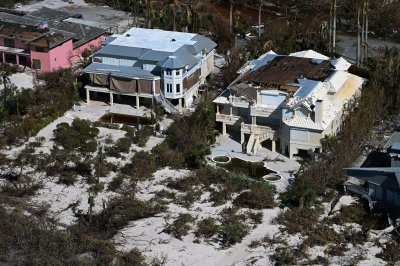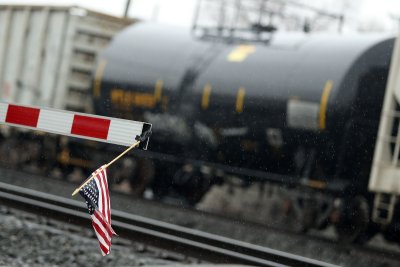Topic: Hurricane Katrina
Quotes
Before the storm, we were not realistic about the fact that the city was already shrinking, and had been for a long time
New Orleans said to be a shrinking city Nov 23, 2008
I am fed up. Nothing has to take this long
Council critics blast N.O. recovery pace Nov 11, 2008
How Can a Poor Man Stand Times Like These and Liv
Springsteen unveils 'Seeger Sessions' Apr 21, 2006
We are left with a picture of a White House that was plagued by the fog of war
Bush aide testifies on Katrina response Jan 28, 2006
This was not the Big One -- not even close
Design flaws seen in broken La. levees Oct 24, 2005
Hurricane Katrina of the 2005 Atlantic hurricane season was the costliest natural disaster, as well as one of the five deadliest hurricanes, in the history of the United States. Among recorded Atlantic hurricanes, it was the sixth strongest overall. At least 1,836 people died in the actual hurricane and in the subsequent floods, making it the deadliest U.S. hurricane since the 1928 Okeechobee hurricane; total property damage was estimated at $81 billion (2005 USD), nearly triple the damage wrought by Hurricane Andrew in 1992.
Hurricane Katrina formed over the Bahamas on August 23, 2005 and crossed southern Florida as a moderate Category 1 hurricane, causing some deaths and flooding there before strengthening rapidly in the Gulf of Mexico. The storm weakened before making its second landfall as a Category 3 storm on the morning of Monday, August 29 in southeast Louisiana. It caused severe destruction along the Gulf coast from central Florida to Texas, much of it due to the storm surge. The most significant number of deaths occurred in New Orleans, Louisiana, which flooded as the levee system catastrophically failed, in many cases hours after the storm had moved inland. Eventually 80% of the city and large tracts of neighboring parishes became flooded, and the floodwaters lingered for weeks. However, the worst property damage occurred in coastal areas, such as all Mississippi beachfront towns, which were flooded over 90% in hours, as boats and casino barges rammed buildings, pushing cars and houses inland, with waters reaching 6–12 miles (10–19 km) from the beach.
The hurricane protection failures in New Orleans prompted a lawsuit against the US Army Corps of Engineers (USACE), the designers and builders of the levee system as mandated by the Flood Control Act of 1965. Responsibility for the failures and flooding was laid squarely on the Army Corps in January 2008, but the federal agency could not be held financially liable due to sovereign immunity in the Flood Control Act of 1928. There was also an investigation of the responses from federal, state and local governments, resulting in the resignation of Federal Emergency Management Agency (FEMA) director Michael D. Brown, and of New Orleans Police Department (NOPD) Superintendent Eddie Compass.
It uses material from the Wikipedia article "Hurricane Katrina."














